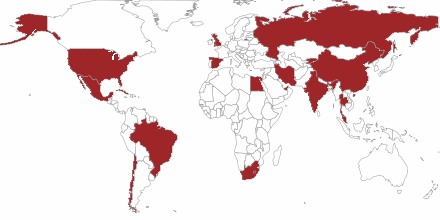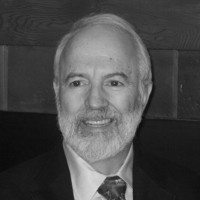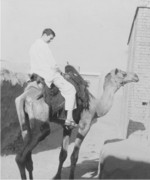Barry Popkin, Ph.D.
W. R. Kenan, Jr. Distinguished Professor, Nutrition
Adjunct Professor, Economics

Barry Popkin’s Work Spans the Globe
- Russia: Was a member of the G7 Economic Reform Team 1991-1993, led poverty and pension level creation by creating a new Russian poverty line, conducted the Russia Long Monitoring Survey Phases I and II, undertook poverty research.
- China: Conducted the China Health and Nutrition Survey and provided beverage guidance, price policy, sodium reduction background research, and fortification of food policy planning, among many older activities.
- Brazil: coauthored many papers on the nutrition transition in Brazil, led others.
- Kyrgyzstan: Conducted the Kyrgyzstan National Multipurpose Survey 1993 and created a poverty line for this country.
- Mexico: Was a member of a beverage panel, chairperson of the front-of-the package food profiling committee for Ministries of Health and Finance and COFEPRIS(Mex. FDA), helped to fund ENSANUT 2012(national dietary collection only), and assisted in a randomized controlled water trial. Now collaborating on food policy tax impact evaluation.
- United Arab Emirates: Conducted a national diet and nutrition survey.
- India: Lived in a squatter area for one year, engaged in policy research over the past 14 years.
- United States: Undertook extensive diet research, led economic research and built environment longitudinal research; Chaired a US beverage guidance panel and was a leader of a nutrition component of the Carter Presidential Child Health Commission.
- United Kingdom: Provided beverage guidance.
- Spain: Guided nutrition transition and provided beverage guidance.
- Philippines: Implemented the first six years of the Cebu Longitudinal Health and Nutrition Survey.
- Middle East: Conducted infant-feeding research in Egypt, Jordan, Tunisia, and Yemen.
- South Africa: Assisted with nutrition program design (Mandela period), fortification planning, and nutrition transition research.
- Egypt, Iran, Thailand, Indonesia, Malaysia, Chile, Cuba: nutrition transition research at all income levels in lower- and middle-income countries.
- Current work with Thailand, Malaysia, Singapore and China on joint front-of-the-package labeling initiative. Related work in India.
- Chile: collaborative food policy evaluation.
- Working with 4 other countries on new initiative on large-scale regulatory policies.
Popkin Background

I grew up in the small town of Superior, Wisconsin. My parents did not have a college education. As I noted in my book, The World is Fat, the way we ate, drank, and moved were typical of the way most Americans handled food in the first half of the 20th century. I attended the University of Wisconsin, where my experiences began to broaden. I went from living in a dormitory with other small town individuals to meeting and befriending people from Chicago and New York, from whom I experienced different influences and points of view for the first time. In 1965 and 1966 I was fortunate to earn a scholarship to spend a year (my first of two senior years) in India. My experience working in a squatter area in old Delhi led to my decision to enter the nutrition research field. I became interested in health and welfare and learned Hindi during this time. When I returned to the University of Wisconsin, I decided to focus on the economics of nutrition for my thesis. My thesis led to an offer to spend the summer working for the U.S. government’s new poverty agency, the Office of Economic Opportunity, where I helped write the Citizens Crusade Against Hunger Report.
At this time I became interested in political activism. My experiences in India had introduced me to vital issues and causes at that turbulent point in time, and I joined others in a demonstration against the bombing of Hanoi—a demonstration that placed us on the front pages of newspapers and magazines across the globe. I began civil rights work in Madison and subsequently left Madison to become a full-time activist. I was a member of the mainstream side of Students for a Democratic Society (SDS) and later, with members of SDS, formed a collective that worked across the Midwest’s large urban areas. I was involved in organizing National Welfare Rights groups and community colleges mainly but had some involvement in union issues. While an undergraduate at Madison, I had done some civil rights work in the South, but this really got me involved. As a political activist, I worked in community groups and community colleges and elsewhere. My major time commitment was organizing welfare mothers. My Marxist and Maoist perspective was of the need to organize communities at the grassroots to achieve true social change.
When I returned to academics and obtained my Ph.D. from Cornell University, my interests were – and remained – nutrition among the poor and the interaction of socioeconomic and individual factors.

I began my academic career with a position in Asia with the Rockefeller Foundation. After spending three years in Southeast Asia I returned to the U.S. and took a job at the University of North Carolina at Chapel Hill. This institution has allowed me to build my research and training program over time and I have remained happily ensconced there for over 30 years.
My economics and activist background has given me a special perspective on nutrition. Concerns such as how low income families live and earn their living led me to focus on women’s work as it affects infant and child nutrition and to other early work on poverty in the U.S. and around the world. Because of having intense experiences in Asia and the U.S., I have always felt comfortable studying both worlds.
Midway through my career I began to feel that that focus on small intense studies misses the major global socioeconomic and demographic transitions. This realization prompted me to develop the China Health and Nutrition Survey, which has continued for almost 20 years now. Over time I have spent long periods thinking, studying, and writing about the major global and historical transitions in food, nutrition, physical activity, and body composition. Ultimately I began to develop my theory of the nutrition transition.
The rest is history! My China work has expanded to many countries, including Russia, and with Carlos Monteiro in Brazil and Mexico with Juan Rivera, Simon Barquera, Sonia Hernandez, and others. I had taken on many global food system policy initiatives and have expanded by work into a number of countries (Chile being the most recent) and four others will come in the next year. My main interest is the global nutrition transition – in particular, the rapid shift to a stage of nutrition-related degenerative diseases with all the dynamic shifts in diet, activity, and obesity. My global research includes longitudinal studies I direct in China, Russia, one I started but no longer handle in the Philippines, and related work in Latin America, Asia, the Middle East, and Africa. Now my focus is learning how to improve our dietary patterns, reduce obesity, diabetes and hypertension and all Nutrition-related NCDs in low and middle income countries, while doing what I can in the US.
For further information, please review Barry Popkin’s CV.
